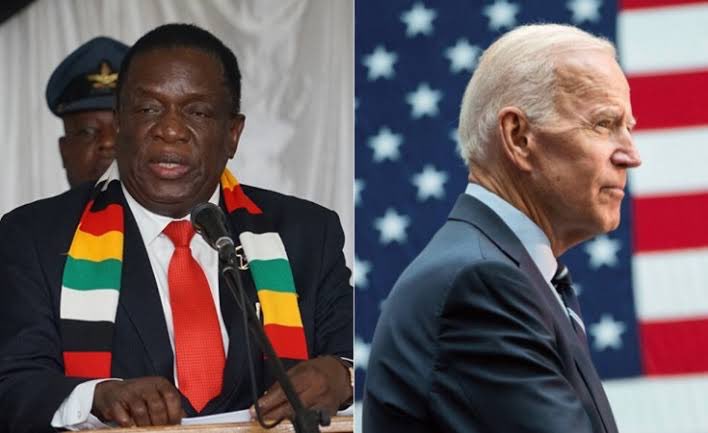The recent termination of the national emergency declared in Executive Order 13288 of March 6, 2003, by President Joseph R. Biden Jr. with respect to Zimbabwe has sparked discussions about its impact on U.S. policy towards the African nation. However, it’s crucial to dissect the implications of this action accurately, particularly concerning the Zimbabwe Democracy and Economic Recovery Act (ZIDERA) and the enforcement of sanctions.
Firstly, it’s essential to clarify that while the termination of the national emergency declaration signifies a potential shift in U.S. policy towards Zimbabwe, it does not directly affect ZIDERA. ZIDERA stands as a separate piece of legislation passed by the U.S. Congress, outlining conditions for the removal of sanctions on Zimbabwe related to democracy, human rights, and the rule of law.
Despite the termination of the national emergency declaration, ZIDERA remains in effect unless specific legislative actions are taken by the U.S. Congress to amend, repeal, or modify its provisions. This means that the sanctions outlined in ZIDERA, including those targeting individuals for human rights violations and corruption, continue to be enforced.
The recent imposition of sanctions on 11 individuals, including the Zimbabwean President, his immediate family, and business partners, underscores the ongoing application of ZIDERA. These sanctions highlight the U.S. government’s commitment to addressing human rights abuses and corruption in Zimbabwe, irrespective of the termination of the national emergency declaration.
It’s crucial to recognize that while the termination of the national emergency declaration may indicate a potential reevaluation of U.S. policy towards Zimbabwe, it does not automatically lift the sanctions imposed under ZIDERA. Any significant changes in diplomatic relations, sanctions, or economic policies towards Zimbabwe would require legislative action by the U.S. Congress.

However, to grasp the full scope of the US government’s decision, it’s essential to explore the complex interplay of diplomatic, regional, humanitarian, economic, and multilateral factors shaping US-Zimbabwe relations.
1. Diplomatic signals and Regional Stability
The termination of the national emergency declaration may be seen as a diplomatic gesture aimed at signaling a potential shift in US policy towards Zimbabwe. By lifting the emergency declaration, the US government could seek to initiate dialogue and engagement with Zimbabwean authorities, fostering a more constructive relationship. Furthermore, the decision aligns with efforts to promote regional stability in Southern Africa. By recalibrating its approach towards Zimbabwe, the US aims to contribute to stability and development in the region, addressing underlying challenges and fostering cooperation among neighboring countries.
2. Humanitarian Concerns and Economic Considerations:
Despite the termination of the national emergency declaration, the imposition of sanctions on individuals for human rights violations and corruption underscores the US government’s continued commitment to addressing humanitarian concerns in Zimbabwe. By targeting individuals implicated in such offenses, the US seeks to uphold its values and principles, advocating for accountability and justice. Additionally, the decision may reflect economic considerations, as the US evaluates opportunities for trade and investment in Zimbabwe. By signaling a potential reevaluation of its stance, the US aims to explore avenues for economic cooperation and development, benefiting both countries’ economies.
3. Multilateral Engagement and Collective Action:
The US government’s decision to terminate the national emergency declaration could also be aligned with broader efforts to engage multilaterally with international partners on issues affecting Zimbabwe. By demonstrating a willingness to reassess its approach, the US seeks to garner support from regional and global stakeholders, fostering collective action towards addressing shared challenges.
In conclusion, the termination of the national emergency declaration concerning Zimbabwe by the US government is influenced by a multitude of factors spanning diplomacy, regional stability, humanitarian concerns, economic interests, and multilateral engagement. While signaling a potential shift in US policy towards Zimbabwe, the decision underscores the complexities and nuances shaping foreign policy in the region. As the US navigates its engagement with Zimbabwe, it seeks to promote stability, democracy, and prosperity while addressing humanitarian issues and advancing its strategic interests.
Alas, how effective have these policies been? The Zimbabwean situation has NOT changed since 2003 when the “emergency declaration” was first introduced. Are there better ways to deal with the situation? Let’s talk…
